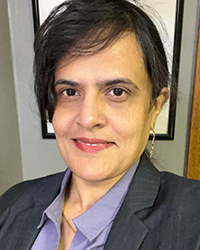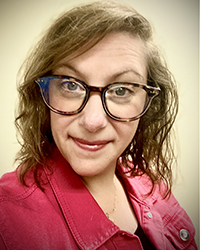WARREN, Ohio – Kent State University at Trumbull will offer six-month and one-year certificates in semiconductor manufacturing beginning this spring to prepare workers for electrical and electronic engineering jobs.
“Both are stackable with each other,” says Flavia Inbanathan, assistant professor in electrical engineering technology at the Kent-Trumbull campus. “The six-month is stacked with the one-year.”
Courses are transferable among Ohio colleges and universities.
A microcredential is also available at the Trumbull campus.

The new offerings developed through a partnership with Intel, which is building a chip manufacturing complex outside of Columbus. That company needs workers to fill those advanced manufacturing jobs.
Intel is partnering with institutions of higher education across Ohio to prepare students for the jobs that will be available.
Kent is leading a network of 13 other colleges and universities in Ohio to develop academic pathways and virtual curricula to prepare students to work in semiconductor fabrication. In 2022, Kent received a three-year $1.1 million grant to increase the number of graduates in the microelectronics field.
But Inbanathan stresses that the microcredentials and certificates prepare students for jobs at companies other than Intel. A student would be prepared for a job at companies that work in electronics and manufacturing, high tech manufacturing, advanced manufacturing or electric vehicle work.
“This certificate program will fit those needs, all those job needs,” she says. “So again, this one-year is tagged with our existing associate degree program.”
Kent Trumbull also offers an associate of applied science degree in electrical/electronic engineering technology. That associate degree is also offered at KSU at Tuscarawas.
“And then again, our two-year associate degree program is already stacked with a bachelor’s,” Inbanathan says. “It has multiple options for whoever is getting enrolled.”
A student can stop after six months, or continue for one, two or four years.
“It’s up to the person and their interest,” she says.
After the Intel grant was received, Kent hired Marina Goldschmidt as Intel-KSU Semiconductor Education and Research Programs director in early 2023.
In May 2023, the university conducted a summer program that drew eight students.
Since Inbanathan started working with the program, participation has increased.

“We had 90 students register for the spring program,” Goldschmidt says.
That included 30 high school students, bachelor and graduate students as well as those considering reskilling, and much of the program was virtual, she says. But they also came into the Advanced Materials and Liquid Crystal Institute at Kent State’s main campus.
Inbanathan also led semiconductor boot camps the last two summers.
They were able to go inside the clean room, work with some of the equipment there to understand what they’re learning and how it applies, Goldschmidt says.
A clean room is a structure that’s free of impurities. The microchip process involves a silicon wafer and uses lithography to transfer design onto the wafer. To do the work, technicians wear safety suits.
It also involves an etching process, eliminating unwanted materials from the surface of the wafer.
Even a tiny impurity will ruin a design. Microchips power smartphones and most electronic gadgets.
Despite recent news of layoffs at Intel, Goldschmidt says it hasn’t affected the program.
“We’re just forging ahead,” she says.
And Intel has been very involved.
“They engage with the students… they connect us with a subject matter experts. So they are participating in all the programs we’re doing,” Goldschmidt says. “They’re giving information not only about what to do and how many jobs they’re going to have and what’s the culture there like but really looking at the details of what does a process engineer do…”
The certificate programs that will be offered at Kent Trumbull beginning this spring cover introduction to semiconductors, clean rooms, vacuum systems and introduction to manufacturing.
They’ll also learn the “fundamentals of electric circuits and then a little bit hands-on with the computers,” Inbanathan says.
The certificate could appeal to people across the demographic spectrum, from high school students to stay-at-home parents who want to try microelectronics, she says.
“Or anyone who wants to upskill and reskill,” Inbanathan says. “It’s open to everyone. There is no limit. There is no preliminary requirement for those six months. If somebody wants to do a fresh start, it’s applicable to them also.”
